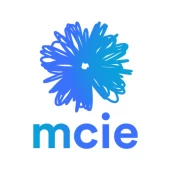
Certificate IV in Disability - CHC43115
Melbourne City Institute of Education
Type of institution: Registered Training Organisation
Level: Vocational Education and Training (VET)
CRICOS: 03024A
This qualification reflects the role of workers in a range of community settings and clients\u2019 homes, who provide training and support in a manner that empowers people with disabilities to achieve greater levels of independence, self-reliance, community participation and wellbeing. Workers promote a person-centred approach, work without direct supervision and may be required to supervise and/or coordinate a small team.To achieve this qualification, the candidate must have completed at least 120 hours of work as detailed in the Assessment Requirements of the units of competency.No licensing, legislative, regulatory or certification requirements apply to this qualification at the time of publication.
Structure
- 14 units: 11 core
- 3 elective
Subjects
- Work effectively in the leisure and health industries
- Coordinate and monitor home based support
- Participate in the planning, implementation and monitoring of individual leisure and health programs
- Facilitate the empowerment of older people
- Provide home and community support services
- Provide community focused health promotion and prevention strategies
- Engage respectfully with young people
- Facilitate the interests and rights of clients
- Provide sexual and reproductive health information to clients
- Work effectively in employment services
- Recognise healthy body systems
- Facilitate community participation and social inclusion
- Apply fluoride varnish
- Work with diverse people
- Manage work health and safety
- Promote Aboriginal and/or Torres Strait Islander cultural safety
- Visit client residence
- Recognise and respond to crisis situations
- Develop and promote positive person-centred behaviour supports
- Communicate using augmentative and alternative communication strategies
- Facilitate the empowerment of people with disability
- Confirm physical health status
- Provide advocacy and representation services
- Use basic oral health screening tools
- Follow established person-centred behaviour supports
- Work in an alcohol and other drugs context
- Plan and monitor continuous improvement
- Develop and provide person-centred service responses
- Provide individualised support
- Manage budgets and financial plans
- Process and maintain workplace information
- Follow basic food safety practices
- Work with people with mental health issues
- Plan for and provide care services using a palliative approach
- Support relationships with carers and families
- Develop and implement service programs
- Support the rights and safety of children and young people
- Work with forced migrants
- Transport individuals
- Provide workplace information and resourcing plans
- Conduct individual assessments
- Mentor in the workplace
- Support independence and wellbeing
- Manage and promote diversity
- Support individuals with autism spectrum disorder
- Respond to client language, literacy and numeracy needs
- Meet statutory and organisation information requirements
- Monitor and improve contracted employment services
- Provide person-centred services to people with disability with complex needs
- Use communication to build relationships
- Respond to suspected abuse
- Develop, implement and review quality framework
- Follow safe work practices for direct client care
- Work with people experiencing or at risk of homelessness
- Inform and support patients and groups about oral health
- Work with clients to identify financial literacy education needs
- Contribute to leisure and health programming
- Facilitate individual service planning and delivery
- Improve clients' fundamental financial literacy skills
- Administer and monitor medications
- Show leadership in the workplace
- Maintain work health and safety
- Collect, analyse and apply labour market information
- Recruit, induct and support volunteers
- Lead effective workplace relationships
- Facilitate ongoing skills development using a person-centred approach
- Assist clients with medication
- Maintain a high standard of service
- Manage partnership agreements with service providers
- Plan, organise and facilitate learning in the workplace
- Provide or assist with oral hygiene
- Coordinate services for older people
- Provide group education on consumer credit and debt
- Provide loss and grief support
- Address the needs of people with chronic disease
- Meet personal support needs
- Assess co-existing needs
- Use business technology
- Provide suicide bereavement support
- Deliver care services using a palliative approach
- Recognise and respond to oral health issues
- Apply and manage use of basic oral health products
- Provide support to people living with dementia
- Develop, implement and review sexual and reproductive health education programs
- Develop strategies to address unmet needs
- Manage legal and ethical compliance
- Develop and maintain networks and collaborative partnerships
Study information
| Campus | Fees | Entry | Mid year intake | Attendance |
|---|---|---|---|---|
| MCIE Melbourne CBD | Domestic: $7,700 | Yes |
|
Fee comments
Campuses: MCIE Melbourne CBD.
Enrolment fees include additional resources required for the program and student ID charges. For additional service fees, such as re-assessment fees or Recognition of Prior Learning (RPL), please refer to the relevant Student Handbook.





